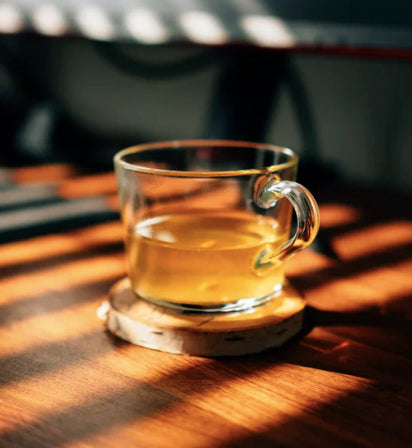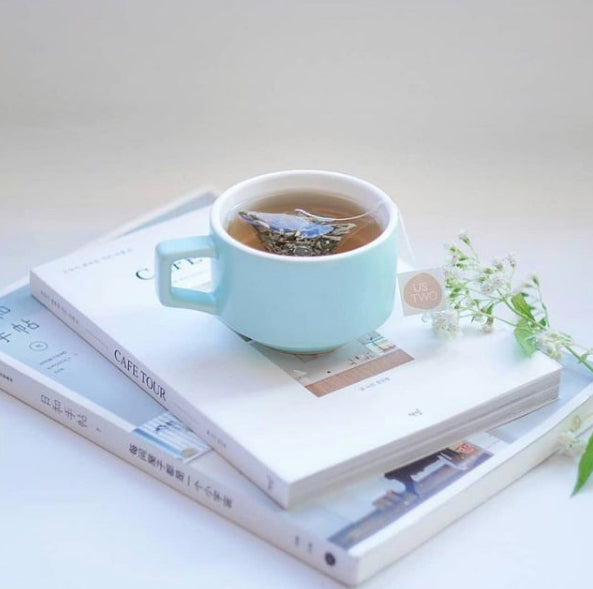Caffeine in Tea vs. Coffee: Which is Better for Staying Awake?
Is tea or coffee better for staying awake? While you might assume that the answer is coffee, tea can be just as effective in keeping you awake. Tea and coffee have unique nutritional properties and caffeine levels, which have different effects on our bodies. So whether you choose tea vs. coffee depends on the type of caffeine fix you're looking for. If you need caffeine ASAP then coffee is your best bet, but if you’re looking for sustained focus and alertness with less side effects then tea is the way to go.
Caffeine in tea
The caffeine content of an 8-ounce (237ml) cup of tea is:
Black tea: 50 mg
Oolong tea: 30-40 mg
Green tea: 20-30 mg
Note that the caffeine in tea also depends on the quantity of tea, temperature of water, and steeping time. It's easy to customize your caffeine intake with tea as you can control these factors. You can also pick and choose the right tea for you depending on the time of day and your energy levels.

Caffeine in coffee
Similar to tea, the caffeine in coffee can depend on the type of coffee, quantity, and brewing method. But in general, an 8-ounce cup of coffee contains 95 mg of caffeine. This means that coffee has two to three times more caffeine than tea.

Which is better for staying awake?
Well, that really depends on the type of alertness you’re looking for. Although coffee has more caffeine, there’s more to the picture than that. Turns out caffeine isn’t the only thing that keeps you awake.
Tea keeps you focused and alert for longer
Most teas have an amino acid called L-theanine. Studies have shown that the combined effects of L-theanine and caffeine include improved cognitive performance and focus. This is because L-theanine increases alpha waves in the brain, which is associated with mental alertness and heightened attention. L-theanine also metabolizes caffeine over a longer period of time, so you’re getting a steady, stable stream of caffeine throughout the day.

Coffee gives you a quick caffeine fix
If you need to feel the effects of caffeine immediately, then it’s best you have a cup of coffee. Since coffee has a higher caffeine content, you’ll feel the effects much faster than you would with tea. But there’s a downside to this quick fix. A caffeine crash can cause fatigue, irritability, and inability to focus. Jitteriness, headaches, and nausea are common too, so it's important to be mindful about how much coffee you drink.

Tea and coffee have different effects on the body, so choose the right caffeine fix for you. Depending on the time of day, your energy levels, and caffeine tolerance, pick and choose your source of caffeine from coffee and various types of tea.
